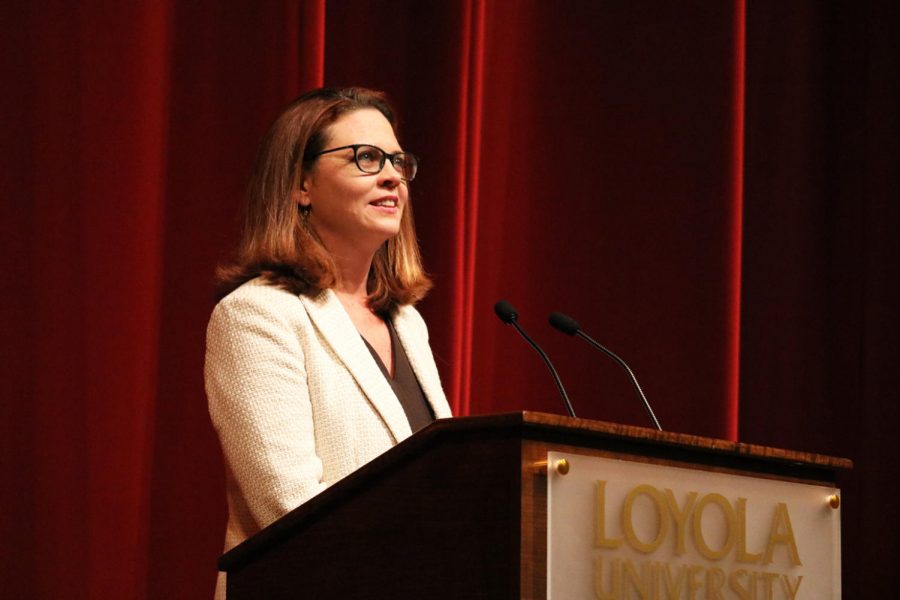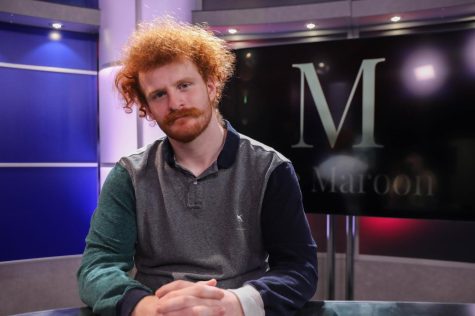Students required to test negative for COVID-19 upon spring semester return
President Tania Tetlow addresses the Loyola community at the President’s Convocation in 2018. Photo credit: Sidney Ovrom
December 8, 2020
“We’re looking for a negative test within five days of you coming back to campus,” Tetlow said. “The test you get before you come back will be up to you. You can either get a rapid test or a PCR.”
While students will be responsible for making sure they get tested, Tetlow emphasized that the administration is willing to help students who don’t have access to affordable testing.
“If any student has no access to testing in your community, you let us know,” said Tetlow.
The administration has also considered requiring students who live in on-campus residence halls to also get tested upon moving in, Tetlow said.
“If we mandate testing when you move in that will be free,” Tetlow said.
Aside from mandated testing, few changes to Loyola’s COVID-19 policies will be made going into the spring semester according to Tetlow. Social distancing and capacity measures will remain in place, as will travel restrictions.
“We’re again really heavily discouraging (travel),” Tetlow said.
Another main topic of the town hall was academic breaks during the spring semester. SGA President Freedom Richardson, who moderated the town hall, said that the SGA received over 20 questions from students regarding a possible week-long break during the spring semester.
Tetlow said that the administration still has no plans to implement that kind of time off, citing concerns over the travel-related spread of COVID-19 and referencing Halloween weekend as a time when students ignoring social distancing guidelines caused a rise in campus COVID cases.
“Even if 95 percent of students are responsible, that 5 percent can ruin it for the rest of us,” Tetlow said.
Tetlow also took time to address an October editorial published by the Maroon which called for time off during the spring semester.
“I took that editorial very seriously,” Tetlow said, “The idea that we’re not doing anything but empty words is a little insulting.”








skeel Chadeel • Dec 29, 2020 at 9:09 am
they charge 5 bucks to get COVID TESTED. A communist institution preaching free health care but cant afford to give it to their students